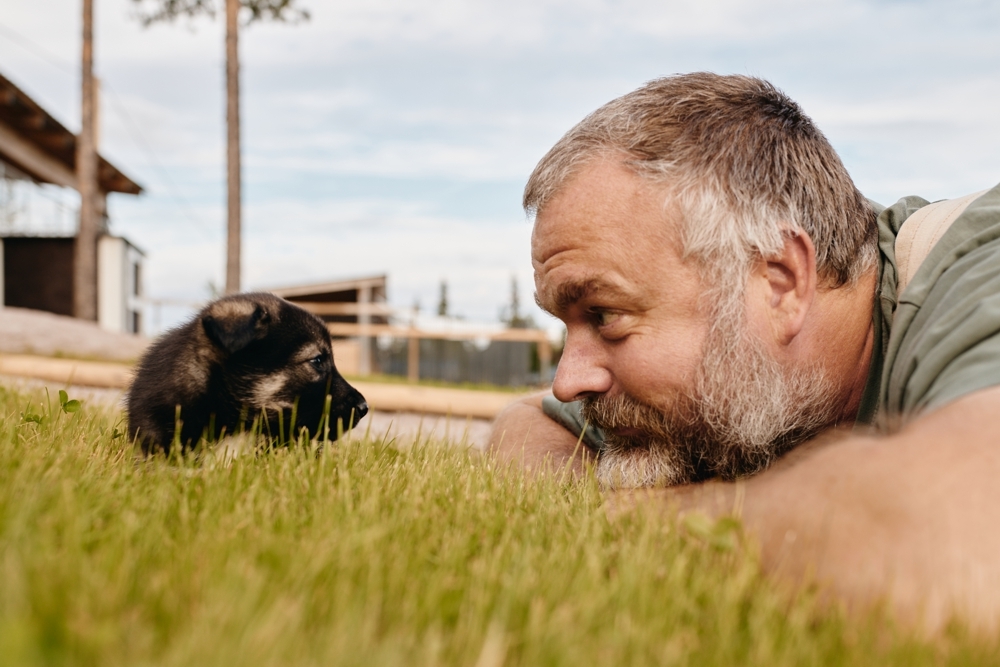Why We’re a No-Kill Kennel: Bearhill’s Approach to Euthanasia and End-of-Life Care
At Bearhill, we have built our kennel around one foundational belief: the dogs who work with us deserve the same respect at the end of their lives as they do during their careers. This includes thoughtful and compassionate end-of-life care. It also includes drawing a firm ethical line: we do not put down healthy dogs just because they are old, retired, or no longer productive. That makes us a no-kill kennel, and this is what that means in practice.

Euthanasia as a Last Resort
We recognize that the decision to euthanize an animal is one of the most difficult choices a caretaker can face. In some situations, it is the most humane course of action—but only when it is backed by veterinary evidence, sound ethics, and clear consideration for the dog’s welfare.
At Bearhill, euthanasia is only considered when there is a medical or behavioral condition that causes suffering or poses serious risks—and only after we’ve exhausted other reasonable options. These cases are rare, and when they occur, they are handled with structure, compassion, and professional oversight.
When Euthanasia Is Justified
Our policy outlines several circumstances where euthanasia may be considered appropriate:
- Severe Trauma: If a dog suffers an injury (such as a spinal fracture or internal bleeding) and the likelihood of recovery is minimal, we may decide euthanasia is the kindest option.
- Chronic and Incurable Disease: If a dog lives with a progressive condition that causes unmanageable pain—despite medical treatment—we consult with our veterinarians to assess quality of life.
- Terminal Illness: When a dog is diagnosed with an aggressive cancer or systemic illness, and treatment would cause more suffering than relief, we may choose euthanasia to prevent prolonged distress.
- Serious Behavioral Disorders: In very rare cases, dogs may exhibit extreme fear or aggression that puts them and others at risk. These decisions are never taken lightly and only come after extensive behavioral assessments and attempted interventions.
- Advanced Age and Decline: Some dogs, in their final months, lose the ability to move comfortably, eat properly, or engage with their environment. We look at each case individually and consider the dog’s dignity and well-being above all else.
When Euthanasia is Not Acceptable
There are also clear lines we will not cross. We do not euthanize dogs:
- Because they are old.
- Because they are too slow or no longer pulling well.
- Because they have manageable medical conditions like allergies or mild arthritis.
- Because re-homing them might take time or effort.
Put simply: we do not end a dog’s life for reasons of convenience, economics, or kennel efficiency.
Our No-Kill Commitment
Being a no-kill kennel means we’re committed to finding solutions. Dogs that can no longer work live out their retirement here or are placed into loving homes where they can enjoy a new chapter. We socialise and train our dogs from a young age to be adaptable—this makes the transition into pet life easier and more successful when the time comes.
Retirement is not the end of their value; it’s the beginning of a different kind of companionship. Over the years, we’ve re-homed dozens of dogs who now hike, run, play, and nap on couches across Europe. It takes work, and it takes planning—but it’s the right thing to do.
Our Decision-Making Process
When we’re faced with a potential euthanasia case, we follow a strict protocol. It begins with a veterinary consultation, including diagnostics and a prognosis. If both the vet and our team agree that euthanasia is the only ethical option, and the owner (if not Bearhill) is informed and consulted, we proceed.
A familiar caretaker is always present during the procedure to comfort the dog. Afterward, we write a report, update all internal systems, and memorialize the dog on our Hall of Fame wall.
In the rare case of a remote emergency—such as a catastrophic injury on the trail—an authorized staff member may perform euthanasia using a firearm. This is only done if there is no chance of survival and the suffering is immediate and profound. Even then, full reporting and documentation are required.

Why This Matters
Our dogs are more than workers. They are our partners, our teammates, and our responsibility. They give us everything they have—every day, in every season—and they ask very little in return. The least we can do is ensure that their final days are filled with the same respect and care that marked their working lives.
So yes, we are a no-kill kennel. But more importantly, we are an ethical kennel. We believe in doing better, even when it’s harder. And when the time comes for one of our dogs to leave us, we make sure it is done with kindness, compassion, and gratitude.
If you would like to learn more about our procedures, policies, and training methods, check out the blog articles below.
- Why the Dog Walker is One of the Best Tools in Our Kennel
- Why We Walk the Puppies: Building the Foundation for a Sled Dog’s Life
- Appetite First: Building Eager Eaters in Our Puppies
- The Painted Puppies: Why We Mark Our Pups with Nail Polish
- Polarised Sled Dog Training: Building Strength and Endurance at Bearhill
- Preparing for Winter: Training Dogs, Training People, and Building a Stronger Team
- Sled Dog Endurance Training: Gradual Progress and Recovery for Peak Winter Fitness



